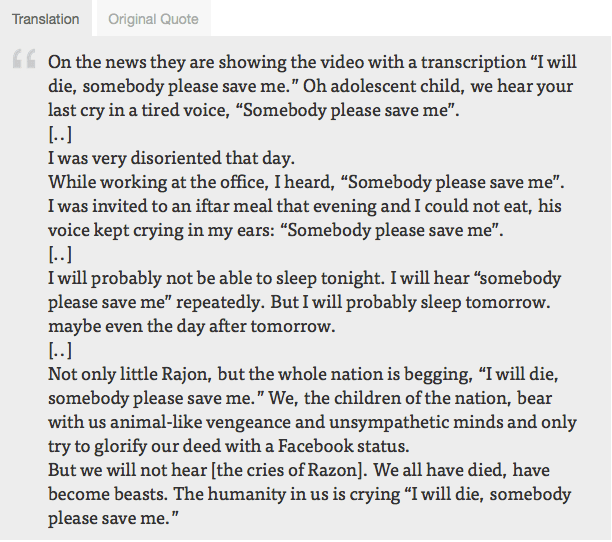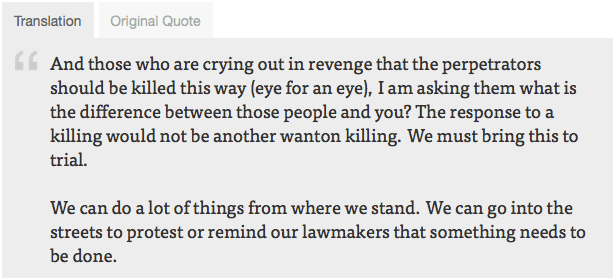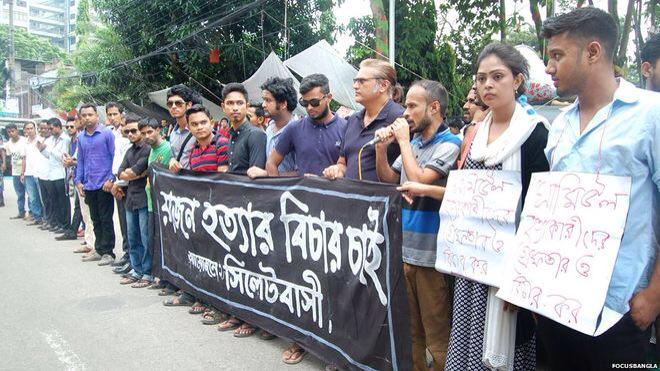A 13-year-old boy’s horrific death becomes viral Facebook video in Bangladesh
Protests have taken place in Bangladesh in the wake of the beating death of 13-year-old Samiul Alam Rajon.
Almost six years after the horrific beating death of Chicago teenager Derrion Albert was captured on a cell-phone video, another disturbing video of a teen being beaten to death earlier this month is spreading online and sparking a social outcry in Bangladesh.
Samiul Alam Rajon, 13 years old, had allegedly stolen a rickshaw van and was recorded by one of his suspected assailants while being tortured. The son of a driver, Rajon had studied up to grade four at a local primary school and was a vegetable vendor.
A shorter version of the 28-minute-long video is available on YouTube (viewer discretion advised). The video was shot with a mobile phone showing Rajon being tied to a pole in Sundar Ali Market while five or six people torture him. Rajon screams and begs for mercy and water while his torturers laugh and swear at him. He was hit several times on his head, stomach and nails with a stick. An autopsy found 64 injury marks on his body.
Blogger Arif Jebtik commented on the disturbing video:

Sabhanaz Rashid Dia was outraged that people shared the video on Facebook:

She added:

Locals caught Muhith Alam, 22, while he was taking the body in a microbus to dump and turned him over to police on July 8. Police have arrested four other people in the murder; one of them was caught in Saudi Arabia after fleeing Bangladesh.
oembed://https%3A//www.youtube.com/watch%3Fv%3DWlPxfHrhSf8
Rajon's mother said her son was not a thief and demanded punishment of those involved in his death. A protest took place this week, in the capital Dhaka, to speak out against such brutality.
Apparently, such violence over stealing allegations is not uncommon in Bangladesh. A simple Google search shows at least 20 cases from November 2013 to July 2015. As Facebook user Haseeb Mahmud pointed out:

The remark was followed by a list of dates and places. No official estimates exist of such incidents. Most of the time, the news was not highlighted or even followed up by the mainstream media, neither picked up by social media. Many of the cases are not recorded and the perpetrators get away with the crime due to social injustice, goldfish memories and the ineffectiveness of law enforcement agencies.
A version of this story was cross-posted at Global Voices, a community of 1,200 bloggers and reporters worldwide.
